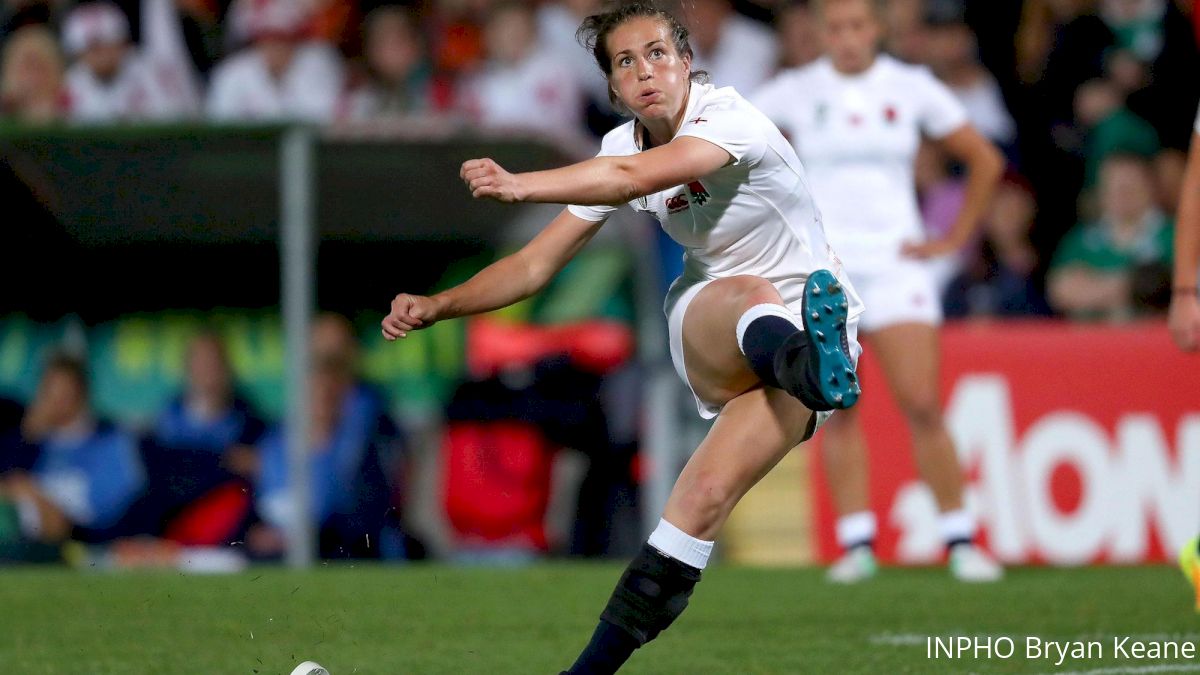Pro Contracts Shake Up Women 6 Nations
Pro Contracts Shake Up Women 6 Nations
Jackie Finlan looks at how professionalism will shake up the Women's Six Nations

The 2019 Women’s Six Nations kicks off Friday, Feb. 1, and while the 18th edition of the six-team tournament looks similar to years past as squads adjust to injuries, retirements, and unavailability due to 7s, there is one distinguishing characteristic: professionalism.
FloRugby is once again live-streaming all 15 matches for North American viewers
The shift may not necessarily assert itself in Round 1, but will eventually emerge as influential: England has full-time professionals.
The Rugby Breakdown editor Jackie Finlan contributes to our Women's Six Nations coverage.
In September 2018, England RFU announced that it was funding 28 full-time and seven Elite Player Squad – or part-time – contracts to women’s 15s players beginning in 2019. It was a bold step in professionalizing the 15s game in England, and the significance was not lost on the rest of the world.
And that included Kristine Sommer. The USA Eagle is splitting time between the Seattle Saracens and Harlequins (ENG), and was competing in the Tyrells Premier League when the news landed.
“There was definitely some nervousness of who would be selected for full and/or partial contracts while I was abroad,” Sommer recalled. “I think this has been a long time coming for England rugby, especially with how well the Red Roses have competed since the 2014 World Cup.”
Friday, Feb. 1, 11am CT England at Ireland
Friday, Feb. 1, 1:35pm CT Italy at Scotland
Saturday, Feb 2, 2pm CT Wales at France
Players like Sarah Hunter, Marlie Packer and Vicky Fleetwood are among the contracted veterans who lifted that 2014 trophy, as are Emily Scarratt and Natasha Hunt, who along with Jess Breach left the 7s program for 15s roles.
Those transitioning from 7s were named first, and when the full squad was released, six Harlequins came away with full-time contracts.
“The Harlequins are pretty much a full-time rugby environment," said Sommer. "I can’t speak for all of the players, but I don’t think any players completely quit their jobs, but maybe took a step back to focus on training with contracts in hand.
“I attended the Wednesday skill and speed sessions regularly and they were extremely valuable. There was definitely England national coach presence during those practices,” the Eagle forward noted. “You can tell that their national staff is putting in the work to make face-to-face connections when they can. It makes me wish the USA was smaller so that national players and staff could meet up more often.”
? Read now | Four Quins named in Red Roses side to face Ireland https://t.co/CKjDmD14pA
— Harlequins Ladies ? (@HarlequinsWomen) January 30, 2019
England head coach Simon Middleton assembled his squad of 35 in early January. The group was tested and then launched into its first camp ahead of Six Nations. He noted that there’d be little sign of a makeover so early in the pro phase of the program, but alluded to longer-term benefits that should play out later in the tournament.
"The players are all developing an understanding of what it means to be fully professional and the mental transition that comes with that,” Middleton told EnglandRugby.com. "We've spent [the first few weeks] looking at everything, from what we expect from the players, combinations we want to work on and the tactics we're looking to use.
"One of the immediate benefits we've seen is those players who are having treatment or are on return to play protocols. We're seeing recovery time decrease just because they can be with us, or at their club, and they're able to receive full-time treatment and rest."
For someone like Sommer – who started against England Academy during the Eagles’ November tour – those perks are music.
“If the USA national team were to offer contracts then I think that would give some stress relief to a lot of players – myself included. Not just financially, but for a chance to be in a full-time high-performance training environment without the stress of a second job,” Sommers explained. “Personally, it would allow me to focus more on training – both on the field and in the gym – while also allow me to have actual recovery time, instead of working 40-50 hours a week on top of rugby. If it doesn’t happen in my rugby career, I hope it does for the next generation!”